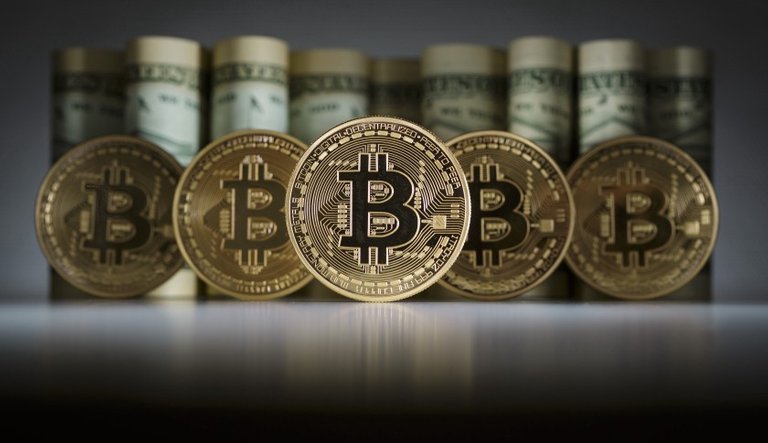
It all boils down to who is your audience but saying "Bitcoin is Digital Gold",this bitter truth could be considered as an insult or a work in progresss
The power of analog gold
Gold as a material is not intrinsically useful. Less than 10% of all the gold mined is used for any industrial or manufacturing purpose. Despite that, humans have converged on believing that gold is highly valuable.
Why?
Putting aside the primitive reasons why humans are attracted to gold, it has several nice economic properties. Gold is hard to mine and new deposits are found infrequently, so its supply undergoes relatively little inflation. Gold also doesn’t tarnish or corrode, so existent gold will remain salable. This leads to minimal price fluctuations, making it appealing as a stable store of value. Furthermore, no market or state actor has a monopoly on gold, so its rises and falls are uncorrelated with any country. For these and other reasons, humans have agreed on gold as the Schelling Point for a static store of value.

As this static store of value, gold serves as a hedge against global economic movements. Even as economies rise and fall, gold remains gold, and its movements are largely independent. Thus, for the last several thousand years, gold has served as our globally decentralized store of value. It’s valuable because we all agree to use it that way.
But gold, it turns out, is far from the ideal store of value. Gold bars are big and heavy. Gold is expensive to house and guard. It’s difficult to transport. It can be stolen and manipulated. You can easily lie about having gold, or the purity of that gold.
Still, a first-world citizen might well ask — what’s the big deal? I can buy some bits of gold if I need to, and if I’m desperate to keep my money safe, I can just deposit my funds into a bank.
Why digital gold is so important
Most first-world citizens don’t grasp just how much of the world does not have either 1) secure banking infrastructure, or 2) functioning gold markets. When your currency is inflating due to governmental instability, when currency controls prevent you from divesting from the volatile local currency, when the banking infrastructure is too weak to trust local banks, and when the state is corrupt or incompetent, one of the few ways to secure your wealth is to invest it in gold. And in a lot of places, that’s very difficult to do safely.
For many of my software developer friends who’ve only ever lived in the United States, it’s hard to imagine having such a deep mistrust of one’s government or economy.
If you use human development index (HDI) as a proxy for what portion of the world is highly-developed, the UN lists about 50 nations as being in the “very high human development” category, including the U.S., most of Europe, Japan, South Korea, Saudi Arabia, and Russia. The least developed of these highly-developed economies in currently Kuwait. The highly developed countries in total comprise only 15% of the world’s population.
In other words, 85% of the world’s population lives in places less developed than Kuwait. In the US, with a stable currency like the USD, with robust financial infrastructure and layers of technology on top of it (Visa, Paypal, Venmo, etc.), it’s hard to imagine what the value-add of Bitcoin would be. But much of Bitcoin’s value is going to be delivered to the other 85% of the world.
Technologists have been chasing after digital gold for a long time. Many schemes have been tried, including e-gold and e-Bullion (both with gold-backed reserves), or DigiCash, which aimed to be a centralized digital currency.
They all failed. Bitcoin is the first digital currency to ever truly succeed at this.
Isn’t Bitcoin too volatile to replace gold?
You might argue that a currency that fluctuates by 15% on a normal day cannot possibly replace gold. This is a fair point. Bitcoin has not yet been able to serve as a stable store of value. But Bitcoin does not need to immediately replace gold. For now, it simply needs to complement it.
Stability is only one of the many properties that gold serves in a market. For those who require stability, stablecoins like Tether, BitUSD, or the upcoming Basecoin can satisfy that niche. Five or ten years from now, after the hype and speculation simmer down and Bitcoin becomes a boringly well-understood financial asset, its price will stabilize.
In fact, as Chris Burniske points out, Bitcoin is already about as volatile as oil, and less volatile than many S&P 500 equities.
Bitcoin is now about 5–6 times more volatile than gold, and the gap is gradually closing.
Still, you might hear this and assume this is speculation. Bitcoin cannot yet act as digital gold, but people are buying it hoping it one day will.
I’d argue there are several reasons why, even with its volatility, Bitcoin is already a very effective form of digital gold.
Why Bitcoin serves as digital gold
First, Bitcoin’s value is not dependent on any nation-state or any economy. In fact, Bitcoin has been shown to be almost entirely uncorrelated with any other asset class, including gold itself.
Second, Bitcoin can be acquired and traded from anywhere in the world, regardless of local markets and banking infrastructure. This is key to being an effective destination for capital flight.
These first two points could describe most cryptocurrencies, but there’s a third and larger point that comes out in favor of Bitcoin in particular: Bitcoin, like gold, is very resistant to change.
Unlike other cryptocurrencies, Bitcoin has seen surprisingly little innovation or evolution since its invention in 2008 by Satoshi Nakamoto. While protocols like Ethereum and Ripple have undergone significant and enterprising pivots in their roadmaps, Bitcoin and its community are ideologically committed to maintaining something close to its original design.
Take Bitcoin’s spectral creator, Satoshi Nakamoto. After single-handedly inventing and coding the first version of the Bitcoin protocol, Satoshi disappeared from the Bitcoin world in 2010. His absence imbues an almost religious reverence around the technology’s initial specification, and many Bitcoiners are devoted to its technological immutability. This is furthered by the political deadlock among miners, developers, and users, who are all opposed to any of the other parties changing the balance of power.
Bitcoin also has a stable roadmap for inflation and is mined at a predictable rate. It always produces on average one block every ten minutes. In almost all ways, Bitcoin is predictable. This is ideal for something to serve as “digital gold.” Gold, by its nature, is predictable and doesn’t change.
Bitcoin has the most hashing power, and so is the most secure cryptocurrency. It’s the most universal, the most liquid, the most ubiquitous, and has the smallest price movements of all cryptocurrencies (some stablecoins aside). It’s also the simplest, and has the most brand awareness — both great properties for gold.
As a payments layer, Bitcoin is slow, expensive, and unscalable. But if Bitcoin is to serve as digital gold, that doesn’t matter. Bitcoin being hard to move around encourages people to treat it like gold. Almost all of the political and economic characteristics of Bitcoin make it the natural cryptocurrency to fill this niche.
And it already does. In many jurisdictions, if someone wants to hedge against their local economy, escape currency controls, divest from a collapsing currency, or just commit some good old-fashioned tax evasion, Bitcoin is the most natural way to do it.
Beyond economics
I’ve often heard the argument: but gold is more than just the sum of its economic properties. There is a narrative valence around gold. Gold is the metal of kings, of legendary palaces, of ancient riches.
Unlike Bitcoin, nobody needs to explain why gold is valuable. You don’t need to round up bankers to expensive conferences and give them presentations on why gold is a good store of value. Gold is simple. Bitcoin is complicated. So in the long run, the argument goes, Bitcoin can never replace gold.
This is nonsense.
It’s true that the stories we tell matter. But those stories can change. On the island of Yap the Yapese decided that large stone disks would be their store of value. Eventually, after the introduction of modern currencies, the Rai stones fell mostly out of use, and they now primarily transact with US dollar bills. Stories don’t win over everything. Eventually, raw utility supplants tradition.
Furthermore, gold has not always been as stable or as valuable as it is now. Oil once had the same physical aura and narrative valence as gold, but as other commodities started to overtake its utility, it became less valuable.
If Bitcoin is a serious improvement over gold and starts to displace its role, the market will respond and re-price accordingly.
I’ll grant this though: gold’s simplicity is a great feature. But Bitcoin is likewise the simplest cryptocurrency. You can explain the intuitions behind Bitcoin to any captive high schooler who has a basic grasp of probability and a moderate attention span. Bitcoin is also simple in that it can’t do a lot. Its programmability is stunted at best, but this is just fine for a store of value.
But this argument against technically complex money is ultimately a fallacy. Take credit cards.
The first plastic credit card was issued in 1958. The magnetic stripe was introduced in 1970. By the mid-70s credit cards were totally pedestrian and ubiquitous in American society. How many people who transact with credit cards can explain what magnetism even is? Forget about knowing how their credit scores work.
If a technology sufficiently improves over the status quo, people will habituate to it. In 2007, smartphones were exotic, futuristic gadgets. Ten years later, they’re just a pedestrian necessity of modern life. If Bitcoin is cheaper, easier, and more ubiquitous, it will follow the same course — people will shrug it off the way they shrug off all the amazing technology that goes into their smartphone or their credit card.
To the digital native of the future, Bitcoin wallets will probably seem more natural than vaults full of useless metals painstakingly drilled out of the earth.
How does Bitcoin size up to the gold market right now?
Gold is a 3–6 trillion dollar market depending on how you do the accounting, and its daily trading volume is between 70 and 200 billion dollars per day. Let’s use the most conservative sizing of 3T market cap, and 70B dollars a day.
On January 1st this year, Bitcoin was at 0.5% of gold’s market cap, and its trading volume was 0.1% of gold’s trading volume. Today, Bitcoin is 3.3% of gold by market cap, and 3.1% of its trading volume.
This trend will likely continue. And I suspect that once Bitcoin starts to seriously gain on gold, four things will happen.
Nation states will panic and increase their backlash against cryptocurrencies.
Gold markets will start to fall.
There will be increased attempts to regulate Bitcoin to protect the interests of gold holders.
Bitcoin will stop being taken seriously as a contender for the blockchain payments layer.
An excerpt from We already know Blockchain killer Apps Written by Haseeb Qureshi.
Source
Plagiarism is the copying & pasting of others work without giving credit to the original author or artist. Plagiarized posts are considered spam.
Spam is discouraged by the community, and may result in action from the cheetah bot.
More information and tips on sharing content.
If you believe this comment is in error, please contact us in #disputes on Discord
Hi! I am a robot. I just upvoted you! I found similar content that readers might be interested in:
https://hackernoon.com/we-already-know-blockchains-killer-apps-f2d443eba35